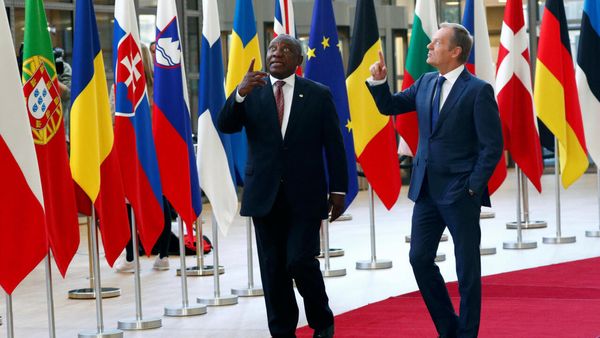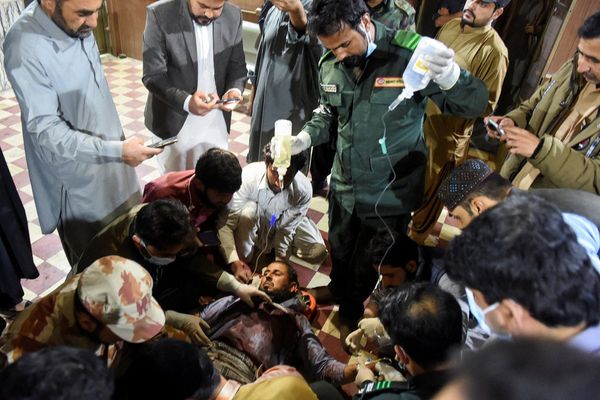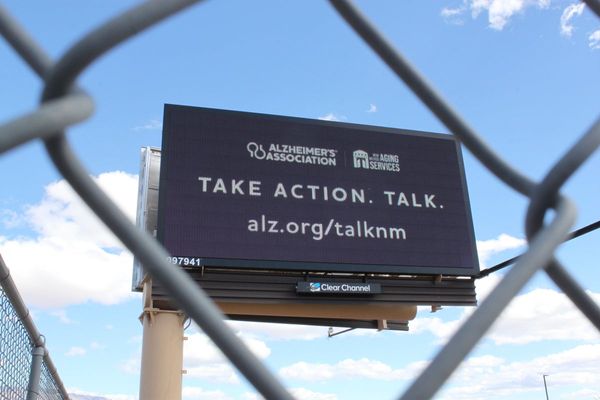
Bangladesh’s ruling alliance won almost all the seats in parliament in the country’s general election, giving Prime Minister Sheikh Hasina a third straight term despite allegations of intimidation and an opposition call for a fresh vote.
The coalition led by Hasina’s Awami League won 288 of 300 seats - 96% - in Sunday’s polls, Election Commission secretary Helal Uddin Ahmed said. The National Unity Front, the opposition alliance led by lawyer Kamal Hossain, won only seven seats.
Prime Minister Narendra Modi telephoned Hasina on Monday morning to convey his congratulations on the “decisive results”. Modi expressed confidence the India-Bangladesh partnership will “continue to flourish under her farsighted leadership”, a statement from the external affairs ministry said.
Modi reiterated the priority New Delhi attaches to Dhaka “as a neighbour, a close partner for regional development, security and cooperation, and a central pillar in India’s ‘Neighbourhood First’ policy”.
Hasina thanked Modi for being the first leader to call to congratulate her and she also thanked India for its “consistent and generous support which has benefited Bangladesh’s development”.
The Awami League-led government has developed strong ties with India and the two sides cooperate closely on diverse issues ranging from security to civil nuclear technology. Bangladesh has also cracked down on militants from India’s northeastern states who were based on its soil. The opposition rejected the outcome, with Hossain calling the election “farcical” and demanding new polls under a “nonpartisan government”. However, chief election commissioner KM Nurul Huda ruled out a revote, saying there were no reports of large irregularities.
“It is not possible to hold a fresh election as the election was held in a peaceful manner,” Huda said, adding the turnout was 80%.
Hasina, who met political leaders and senior military and civil officials at her office, rejected allegations of vote rigging and said people had enthusiastically gone to the polls in a largely peaceful election. She said the victory was “nothing for her personal gain, rather it is a great responsibility toward the country and people”.
The external affairs ministry statement said India welcomed the “successful completion of the parliamentary elections” and congratulated “the people of Bangladesh for reaffirming their faith in democracy, development and the vision of Bangabandhu Sheikh Mujibur Rahman”.
Hasina’s main rival, former premier Khaleda Zia, the leader of the Bangladesh Nationalist Party (BNP), was ineligible to run for office as she was jailed in February on corruption charges she says were politically motivated. In Zia’s absence, opposition parties formed the coalition led by Hossain, an 82-year-old former member of the Awami League. The opposition says Hasina’s leadership has become increasingly authoritarian. Sixteen people were killed in election-related violence on Sunday, and the campaign was dogged by allegations of the arrest and jailing of thousands of Hasina’s opponents.
Bangladesh’s leading newspapers ran banner headlines. A headline in the leading English newspaper, The Daily Star, read, “Hat-trick for Hasina, BNP found missing in polling; atmosphere festive, tuned only to ruling party”. In an editorial, the newspaper said “this was a one-sided election”.
Rights groups have sounded alarms about an erosion of Bangladesh’s democracy, rights abuses and a crackdown on media, but Hasina has promoted a different narrative about her decade in power, highlighting an ambitious economic agenda that has propelled Bangladesh past larger neighbours Pakistan and India. “Certainly, the Awami League enjoys strong constituencies and has support and it can get votes, but for any party to win more than 90% of the seats is simply too suspicious,” said Michael Kugelman, South Asia senior associate at Washington-based Wilson Center. Some 104 million people in the Muslim-majority country were eligible to vote, including many young, first-time voters, in Bangladesh’s 11th general election since independence from Pakistan.
Both sides were hoping to avoid a repeat of 2014, when Zia and the BNP boycotted and voter turnout was only 22%.
About 600,000 security officials, including army and paramilitary forces, were deployed to counter violence. The telecommunications regulator shut down mobile internet services nationwide to prevent the organising of protests.
Hasina, the daughter of Bangladesh’s founder Mujibur Rahman, was born on September 28, 1947 in northern Bangladesh. She is the eldest of the five children of Rahman, the first president of the country.
Though she took active interest in politics throughout her student life, Hasina formally joined the Awami League as its leader following the assassination of Rahman, his wife and three sons in 1975.
Ending six years in self-exile in India, she returned home in May 1981. In 1983, Hasina formed an alliance to oust military dictator Hussain Muhammad Ershad. Since she took power in 2008, Bangladesh’s per capita income has seen a threefold increase. The country’s GDP stood at $250 billion in 2017 and it clocked a growth rate of 7.28% last year. The garment industry has emerged as one of the main pillars of the country’s economy, providing jobs to 4.5 million people.
(with inputs from agencies)
First Published: Dec 31, 2018 22:45 IST







